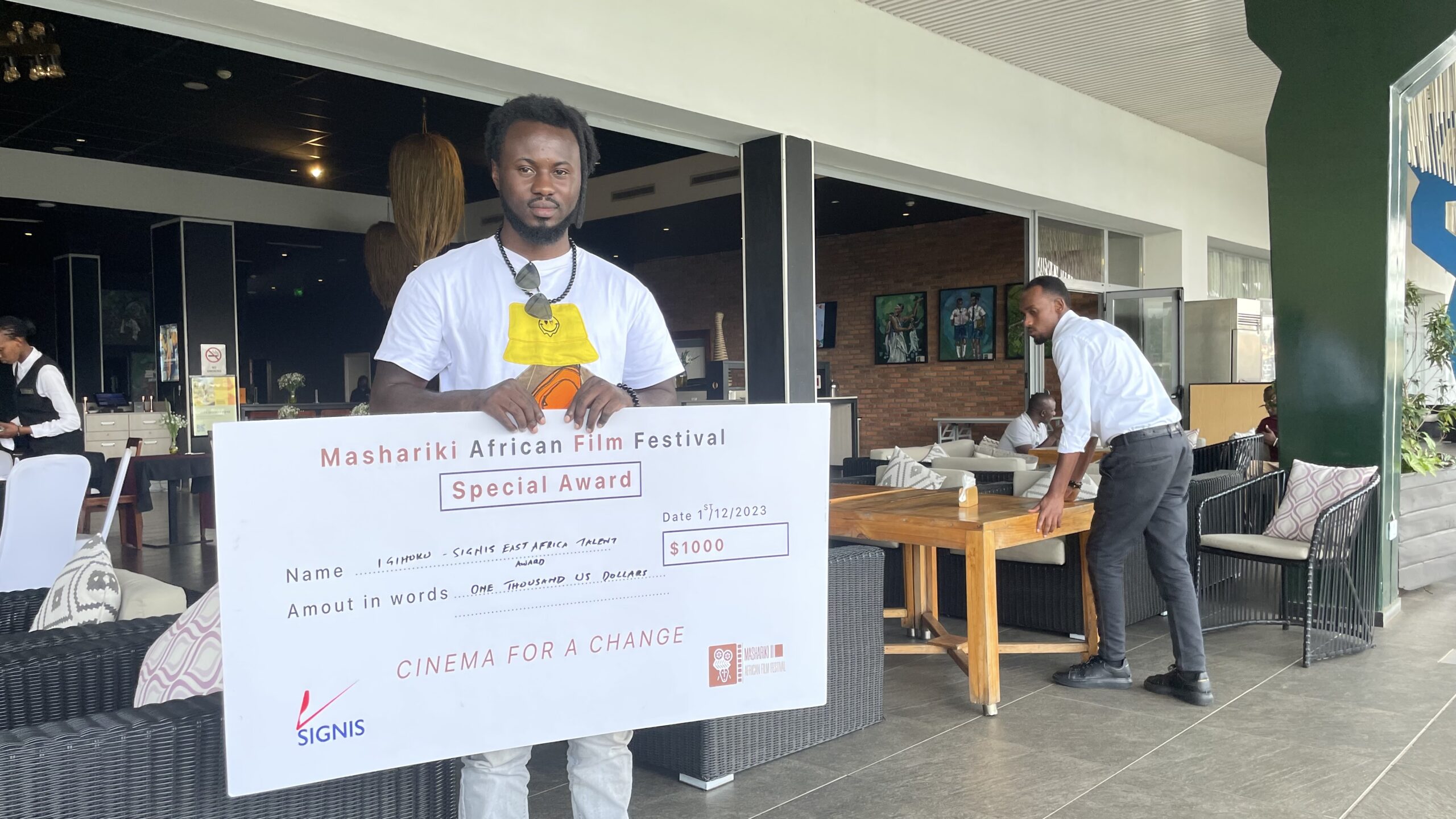AMECEA: SIGNIS Award at the 9th Edition of Mashariki Africa Film Festival

Pamela Adinda
It was the second time that the SIGNIS Jury participated in the Mashariki Africa Film Festival (MAFF). During the 9th Edition of the Festival which was held from 25th November to 1st December, the SIGNIS Jury comprising of Fr Andrew Kaufa, Jacques Mugiraneza, and Pamela Adinda awarded the SIGNIS Prize to Half Open Window, a film from Kenya directed by Omar Hamza Hassan. The film highlights the exploitation of the elderly and vulnerable by their very own dear ones who are supposed to care for them during the sunset years. A captivating story enhanced by great cinematography and setting; the film exposes an unfortunate reality where the battle for the inheritance of the parents’ property becomes a threat to their very existence.
In 2021, the Holy Father Pope Francis instituted World Day for Grandparents and the Elderly, to be held on the fourth Sunday of July annually, close to the feast of Jesus’ grandparents, Saints Joachim and Anne. He made a call to everyone to honor and never abandon their grandparents. The film Half Open Window resonates with this call as it challenges the reality that many people have abandoned their aging parents at care homes and completely disposed of all their possessions.
The Jury gave a commendation to Malaika, a short film from South Africa directed by Maisha Maene. The film highlights the dilemma of a young woman caught between a rock and a hard place when she discovers that her fiancé is sexually abusing her orphaned niece who lives with them. Should she be silent at the expense of her niece because the abuser is the breadwinner of the family or speak out and risk being thrown out together with her niece by the man? These are the dilemmas many African women are facing in the contemporary society so much that standing for justice for the minors and the vulnerable becomes almost impossible.
 The SIGNIS East Africa Talent Award which has a cash prize of US$ 1,000/= was awarded to Igihuku a short film directed by Bora Shingiro from Rwanda. The film was inspired by the plight of young people who witnessed the genocide right inside the churches where they had gone to seek refuge. Many African youths are conflicted when they hear preachers talking about the love of God yet that God could not protect their loved ones. In the context of Rwanda, the film gives a snippet of how the Church still has a long way to go to convince the young people who survived the 1994 genocide to come to Church after some priests are said to have taken part in acts that saw their parents killed.
The SIGNIS East Africa Talent Award which has a cash prize of US$ 1,000/= was awarded to Igihuku a short film directed by Bora Shingiro from Rwanda. The film was inspired by the plight of young people who witnessed the genocide right inside the churches where they had gone to seek refuge. Many African youths are conflicted when they hear preachers talking about the love of God yet that God could not protect their loved ones. In the context of Rwanda, the film gives a snippet of how the Church still has a long way to go to convince the young people who survived the 1994 genocide to come to Church after some priests are said to have taken part in acts that saw their parents killed.
According to the director, the film which took two months to produce at a budget of only five United States hundred dollars (USD $500).
Bora Shingiro noted that the Rwandan film industry is very rich in content and has a potential to grow, however, the main challenge is the lack of sponsorship.


